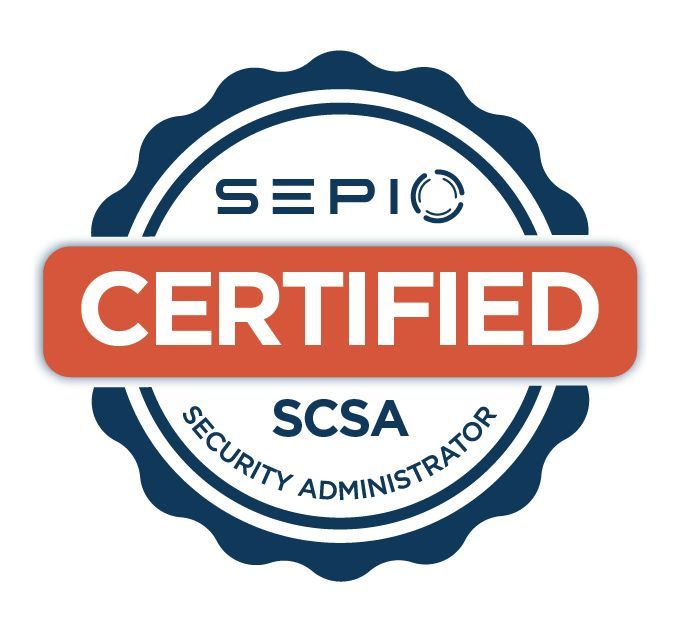Structured Cybersecurity. Measurable Risk Reduction. Hardware-Layer Control.
NIST Cybersecurity Framework
The NIST Cybersecurity Framework (CSF) is a globally recognised model for managing cybersecurity risk. Built on five key functions—Identify, Protect, Detect, Respond, and Recover—it helps organisations of all sizes and sectors build structured, proactive, and repeatable security operations.
At Zerium, we help UK organisations implement and operationalise the NIST CSF—placing a special emphasis on an often-overlooked but increasingly critical layer: hardware asset visibility and control.
As a
UK-based cybersecurity consultancy and an
authorised seller of the Sepio platform, we provide strategic support and physical-layer risk management that enhances all five NIST CSF functions—starting from what’s plugged in to your network.
Request a Consultation
Contact Us
We will get back to you as soon as possible.
Please try again later.
The Five Core Functions of the NIST Cybersecurity Framework
The NIST CSF is organised around five interrelated functions that together represent the lifecycle of cybersecurity risk management:
Identify – Know what you have.
Protect – Safeguard critical assets and limit access.
Detect – Discover anomalies and threats early.
Respond – React quickly to contain impact.
How Zerium + Sepio Enhance Each NIST CSF Function
Each function depends on having accurate, real-time insight into the assets operating within your environment.
Identify: Build a Foundation of Hardware Visibility
You can’t protect what you can’t see. Zerium uses Sepio’s Asset DNA fingerprinting to create a continuously updated inventory of all hardware assets—across IT, OT, and IoT.
We help you:
- Identify all connected devices—including rogue, unmanaged, or shadow assets
- Classify hardware by risk, trust level, and ownership
- Create asset baselines to support broader cybersecurity strategy
This lays the groundwork for meaningful protection, policy design, and governance.
Protect: Enforce Zero-Trust at the Hardware Level
Traditional protection tools focus on software, users, or traffic. Zerium extends your defensive perimeter to the physical layer—ensuring only trusted hardware can interact with your network.
We enable:
- Zero-trust access policies based on device identity
- Hardware risk scoring to automate access decisions
- Integration with NAC, SIEM, and SOAR for holistic protection
Your protection strategies become more accurate and more resilient—down to the plug-in point.
3. Detect: Expose Rogue and Spoofed Devices Instantly
Many sophisticated threats now hide inside peripherals or impersonate trusted hardware. Sepio detects these in real time—without requiring behaviour analysis or endpoint agents.
With our support, you can:
- Detect unauthorised USBs, implanted keyboards, or spoofed endpoints
- Receive real-time alerts on policy violations
- Understand device behaviour relative to physical identity
This improves detection speed, accuracy, and context—allowing you to act faster.
Respond: Contain and Remediate Hardware-Based Threats
Zerium helps clients define automated response playbooks that activate the moment a high-risk device connects.
We support:
- Real-time blocking and quarantine of rogue assets
- Response orchestration via integrations with SOAR platforms
- Root-cause analysis for devices linked to incidents
You gain the ability to respond to
physical threats as easily as digital ones.
Recover: Resume Operations with Trusted Infrastructure
In the wake of an incident, knowing your environment is clean and trusted is essential. Zerium ensures that recovery plans start from a foundation of validated devices.
Our recovery support includes:
- Post-incident device audits
- Hardware trust revalidation
- Reinforcement of asset policies and baselines
With Sepio, you can restore confidence—knowing that your hardware layer hasn’t been compromised or left exposed.
Why Hardware Matters in NIST CSF Implementation
The NIST CSF assumes you have reliable visibility and control over your assets.
Can’t see unmanaged or shadow devices
Don’t detect spoofed hardware or implants
Lack enforcement at the physical access layer
Zerium solves these issues directly—by providing tools and strategies that
expose the full asset picture and enforce trust
before a device has the chance to do damage.
Why Work with Zerium?
Expert guidance on mapping Sepio to NIST functions
Rapid deployment and tailored device policy support
Framework-aligned reporting for internal or external assurance
A trusted UK-based partner with deep sector expertise
Our goal is to help you move from NIST principles to NIST performance.





